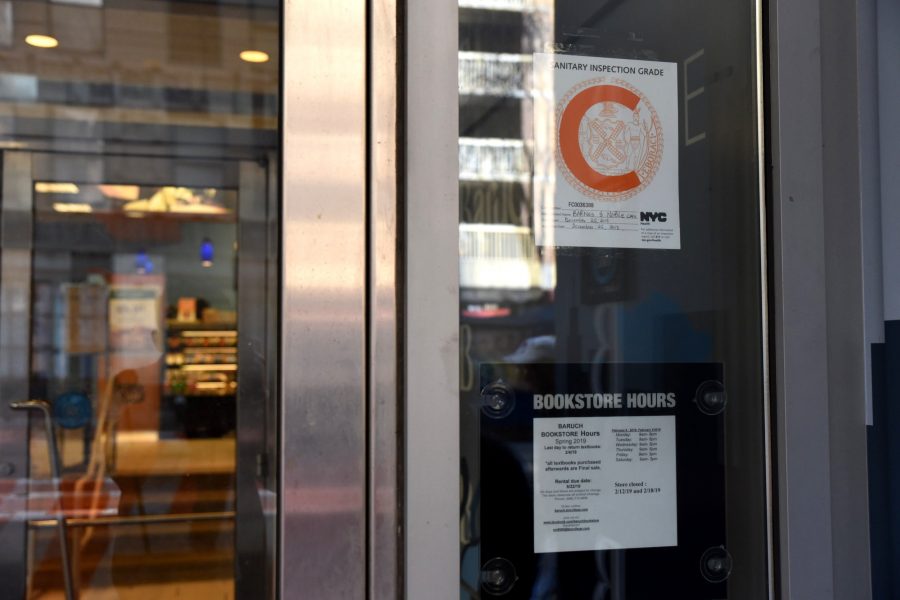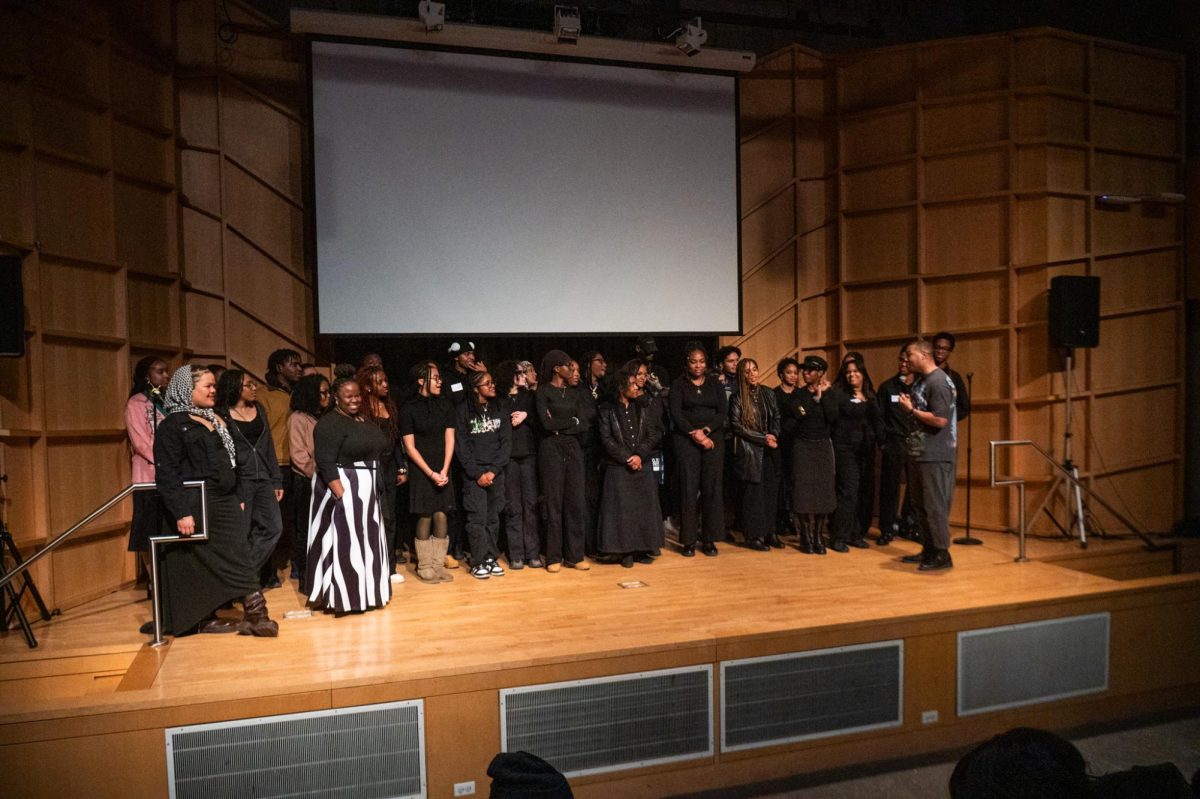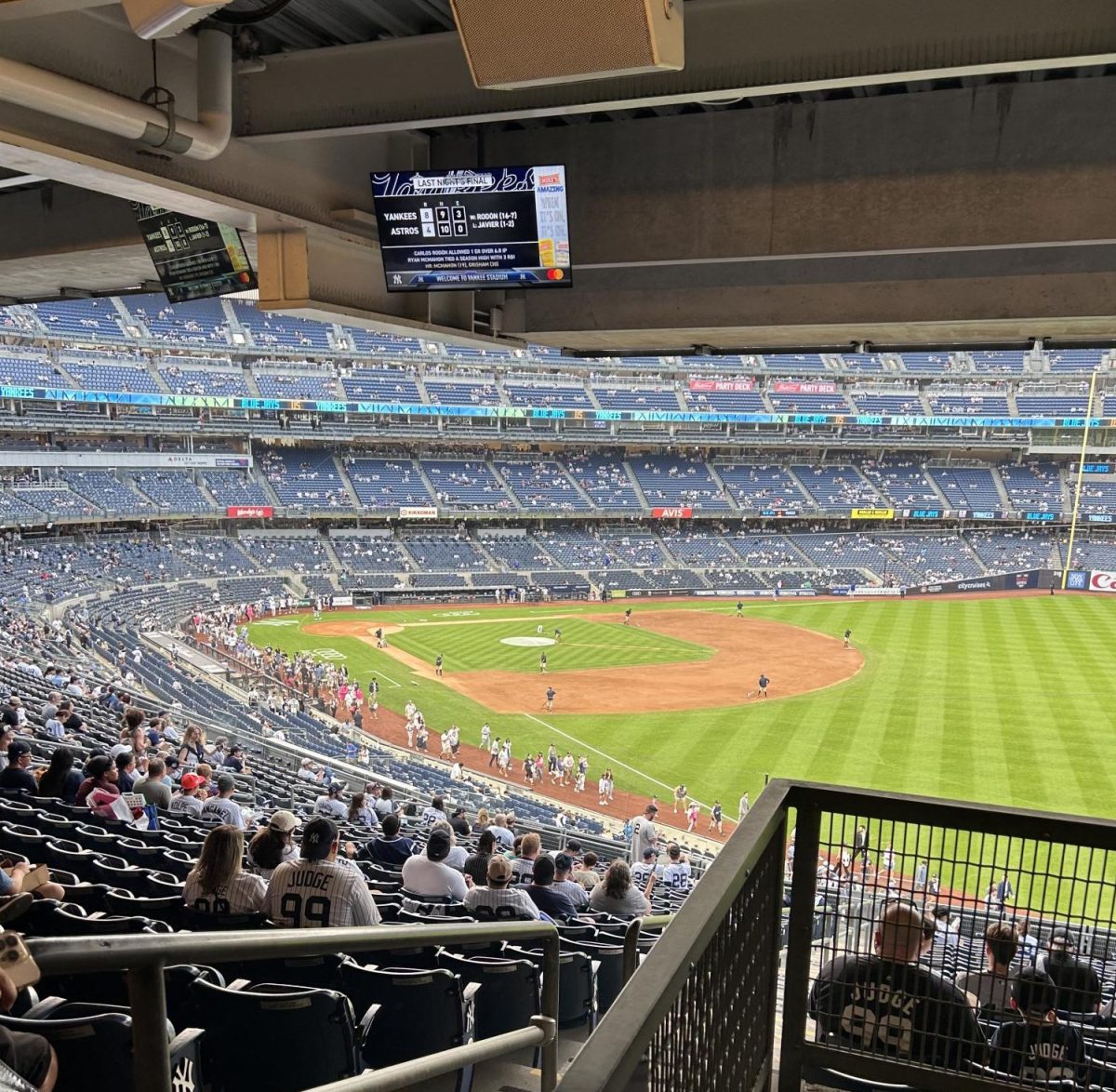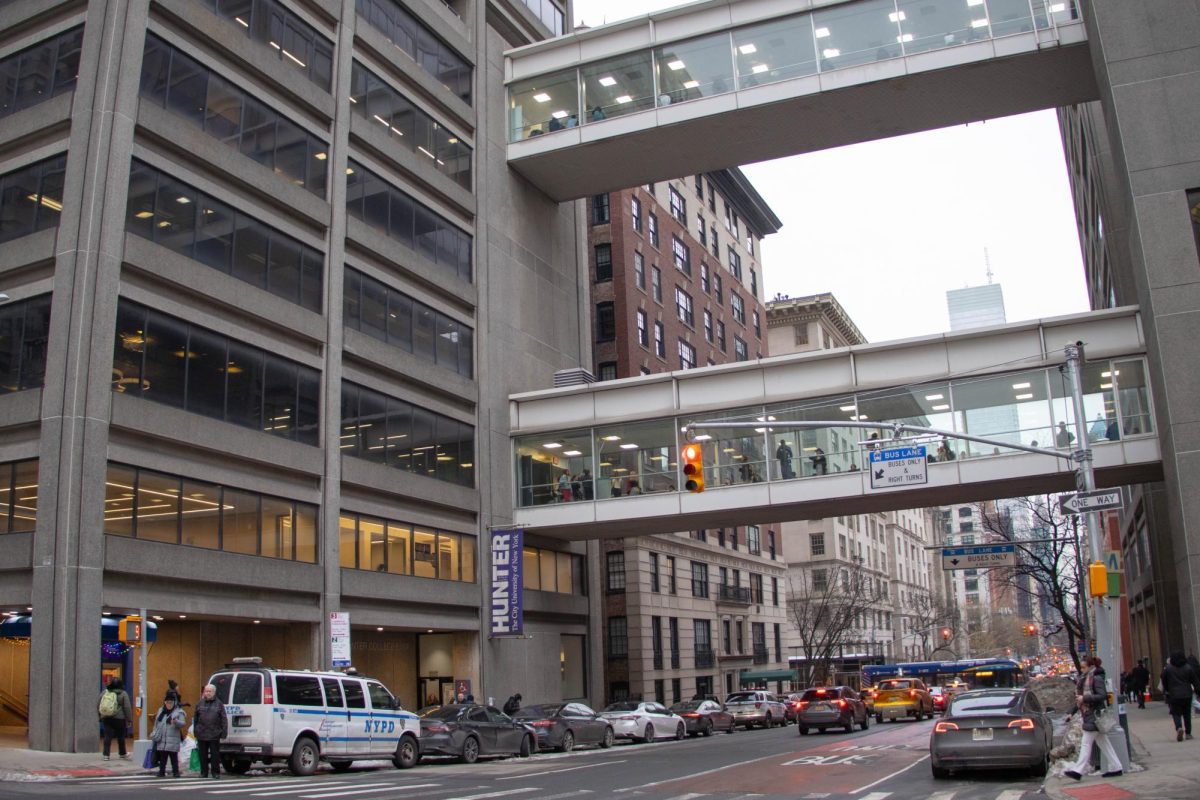Live mice have been spotted in the food areas of Baruch College’s Barnes & Noble Cafe, according to a recent New York City Health Department report.
The cafe racked up a total of 35 violation points following a Dec. 26, 2018 inspection, earning it a “C” grade. The grade can be seen posted on the business’ Lexington Avenue entrance.
“Evidence of mice or live mice present in facility’s food and/or non-food areas,” the Health Department’s report reads.
“Facility not vermin proof. Harborage or conditions conducive to attracting vermin to the premises and/or allowing vermin to exist.”
In order for a restaurant to earn a “C” grade from a Health Department inspection, its total violation points must tally up to 28 or more. Restaurants with a score between 0 and 13 points earn an “A” grade, while those with 14 to 27 points receive a “B” grade.
Critical violations, such as evidence of mice in a restaurants food areas, carries a minimum of five violation points.
In addition to the live vermin found in the report, a Health Department inspector also found that the cafe’s non-food contact surface and equipment was not properly maintained, nor properly sealed. This makes the surface unable to be cleaned on all sides, above and underneath, according to the Health Department.
Besides being an eating area, the cafe is also the site of Baruch club and organization events, such as Encounters Magazine’s “Coffee@6” open mic event.
Undergraduate Student Government President Radhika Kalani told The Ticker that she would reach out to Assistant Vice President of Campus Facilities Lisa Edwards in order to “make the cafe cleaner.”
“USG can also try to promote and market keeping the area cleaner (less crumbs, less mice) etc.,” Kalani told The Ticker in a message. “But what we as Baruch students can do is make sure we don’t leave the area a mess because we are messy. Mice are obviously hard to control. We can look into more mice traps as well to limit the ones that are already out there.”
Edwards told The Ticker in an email that “vendors are required to maintain and clean their leased spaces, specifically with regards to food preparation. Campus Facilities Office (CFO) provides infrastructure related support.”
She added that “CFO maintains an exterminator who regularly visits all food prep, storage, and refuse areas (in addition to other locations). The vendor uses Integrated Pest Management (IPM) methods. IPM is an effective and environmentally sensitive approach to pest management that relies on a combination of common-sense practices that endeavors to provide the least possible hazards to people, property, and the environment.”
Angie Mendez, the bookstore’s store manager told The Ticker via email that after the health inspection, the store “developed an action plan to ensure our café is achieving top standards of cleanliness, which included reviewing and retraining our store team on our daily cleaning practices. Additionally, all members of our store management team are now certified or in the process of being certified for Food Safety Manager advanced level training. We want our bookstore and café to be welcoming, enjoyable places for students and the campus community to gather, and cleanliness is an important part of that.”
Mendez also confirmed that there is no longer any evidence of rodents remaining, but that the situation would continue to be monitored through regular visits from pest control professionals.
“We worked to identify potential entry points for rodents and storage practices to reduce exposure. We have resealed counters and stock room perimeters, and reorganized the back room storage utilizing rodent proof containers,” Mendez said.
In two previous inspections, conducted in October 2016 and December 2017, an inspector noted that the cafe had earned 12 violation points, good enough for an “A” grade. In the 2017 inspection report, inspectors noted that the cafe had evidence of live mice in its food and/or non-food areas.
In both 2016 and 2017, the cafe’s plumbing was reported as being “not properly installed or maintained” and having a poorly functioning sewage disposal system.
Students who were asked about the food area’s grade said they were unhappy with its implications.
“That’s not good,” senior and customer of the cafe Raul Cruz said. “I guess this is my last time getting this coffee here, the only reason I come here is for convenience. Hopefully they figure out how to get an ‘A,’ because it’s Baruch. We need to have high standards for ourselves.”
The cafe is one of just two eateries in the immediate area to earn a “C” grade from the Health Department in recent weeks. The other restaurant was the Popeyes Louisiana Kitchen located at 75 Lexington Ave. Evidence of mice was also found in that restaurant’s food area.
Edwards told The Ticker that in order to reduce the chance of mice on campus, students should discard any food eaten in common areas/club areas in trash cans.
“Food and beverages should not be brought in to class rooms [sic] and lecture halls,” she said. “What may be a crumb to a student can be a feast to a hungry mouse.”
Additional reporting Amanda Salazar








